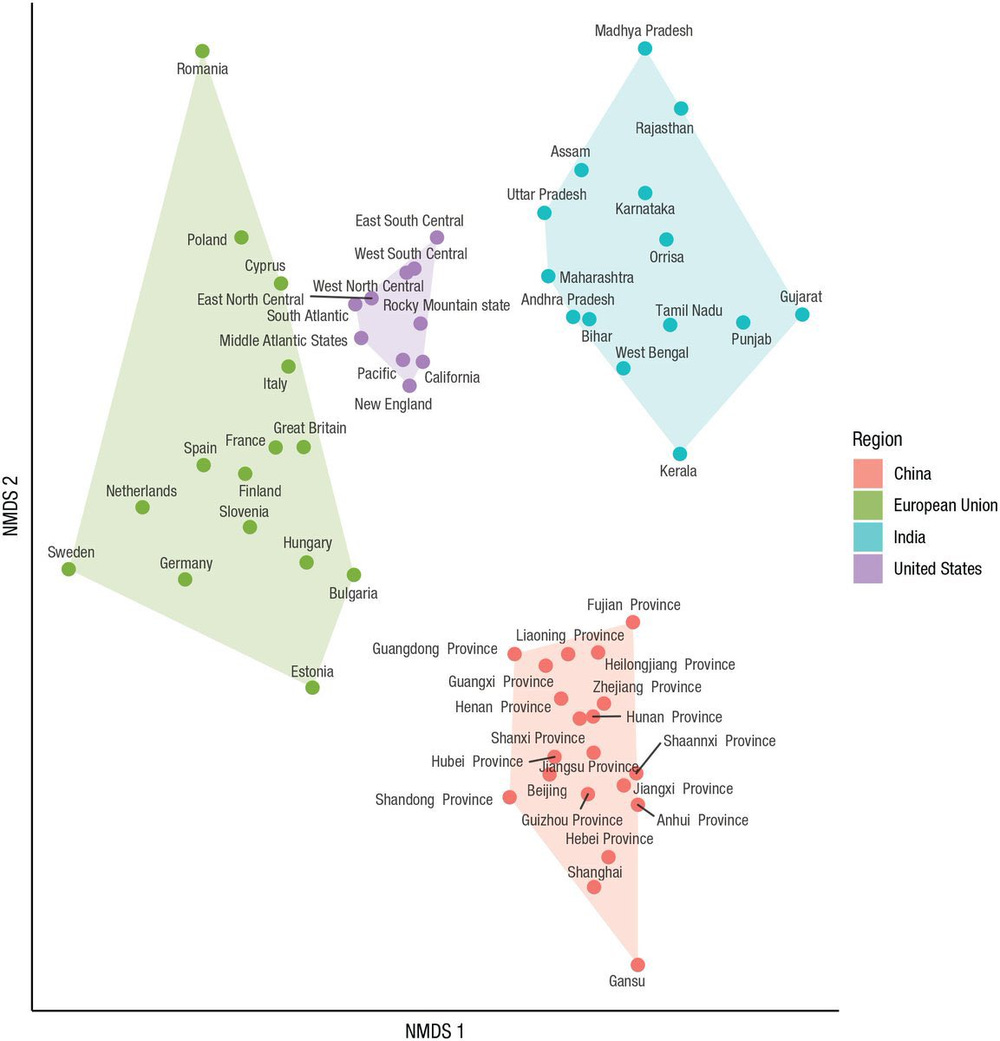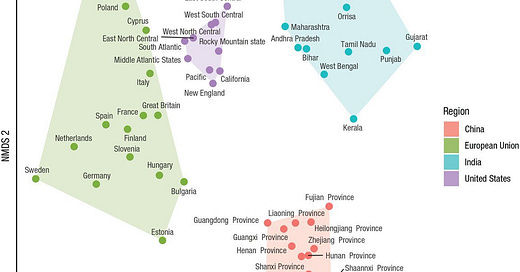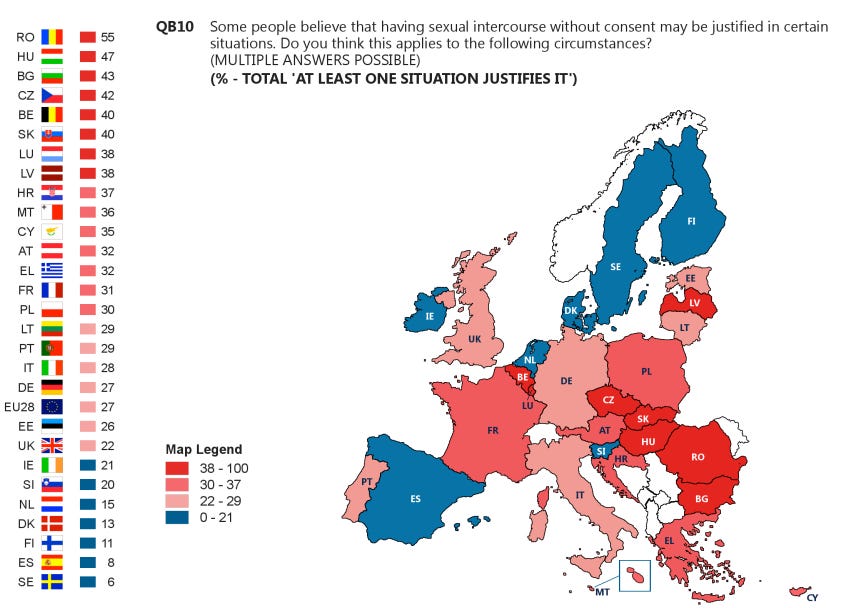Some Americans discuss “Europe” in a way that implies that it’s a reasonably homogeneous entity, on par with the US. I think that’s not right, but that Europe is considerably more heterogeneous, in terms of language, culture, politics, and economics.
Language is the most obvious case: the EU alone has 24 official languages, whereas English wholly dominates the US. I think this linguistic diversity has huge downstream effects. There’s no real European-level public forum, the way the US (or indeed the Anglosphere) has a common public forum. Instead, political and cultural debates are largely conducted within each individual country, in the national language. The situation is very different from that in the US, where there is a lively national debate. Most Europeans have no clue of what people in most other European countries are discussing at the moment. (Indeed, most of us have a far better sense of what Americans are discussing.)
Relatedly, Europeans hold very different values. When you say this, Americans often protest that the differences are large in the US, too. While that’s true, the European differences are simply bigger, according to World Value Survey data:

The differences in views on whether sexual intercourse without consent can be justified are particularly striking. (Unfortunately, I’ve not found analogous data on US states.)
Moving on to politics, the US is a unified political entity to a far, far greater degree than the European Union. Defence and foreign policy are especially obvious cases: Alabama and California don’t have their own tanks and alliances the way Germany and Poland do. In terms of political integration, the US is much more on par with individual European countries than with the EU.
Economically, too, Europe is more disparate than the US. This is true even if we focus on the EU alone, disregarding poorer countries outside of the EU like Moldova and Ukraine. The richest US state (New York) had 2.2 times greater nominal GDP per capita than the poorest state (Mississippi) in 2021. By contrast, the richest EU country (Denmark, disregarding odd and small outliers*) had 5.9 times greater nominal GDP per capita than the poorest country (Bulgaria). Adjusting for purchasing power reduces the differences much more within the EU than within the US, but nominal GDP is an important metric of the economic differences between different areas. Going to Bulgaria on a Danish salary will take you far, whereas the converse definitely won’t. These differences are far smaller in the US.
These patterns match my anecdotal impressions. If you go around Europe the differences—in terms of everything from food to street layout to usage of internet banking to norms around personal interactions—are really striking. There are of course significant differences between different parts of the US as well, but they just don’t seem as big. I’m aware, however, that I may be biassed (being European, and having spent less time in the US).
There are of course European countries that have a lot in common, and it often makes sense to generalise over them, e.g. when discussing culture and economics. But usually, “Europe” won’t be the proper unit of analysis. Instead, it’ll be more useful to focus on smaller sets of countries—like Scandinavia or northwestern Europe—that are less heterogeneous from a cultural or economical point of view. Indeed, in some ways northwestern Europe arguably have more in common with the US than with, e.g. southeastern Europe.
***
Why do some Americans over-generalise over Europe? An obvious reason is simply that people tend to be lumpers from afar, and splitters up close. They find distinguishing details more important regarding things around them—that they know well—than regarding things further away that they know less well.
But I also think that there are other reasons. The EU has explicitly tried to emphasise European commonalities, and downplay the many differences that I’ve mentioned; and to some extent this messaging may be working. Another issue is that Europe and the EU are comparable to the US in terms of size, and people might think that places that are similar in terms of size should be similarly heterogeneous. But that’s not right: e.g. the most linguistically diverse (>800 languages) country in the world is Papua New Guinea, which only has 9-17 million inhabitants. There simply isn’t a particularly strong association between size and heterogeneity. While the US and the EU are similar in size, the EU is far more heterogeneous.
* I’m not including tiny Luxembourg nor Ireland, whose GDP numbers don’t reflect their real wealth. I’m similarly not including Washington D.C.







